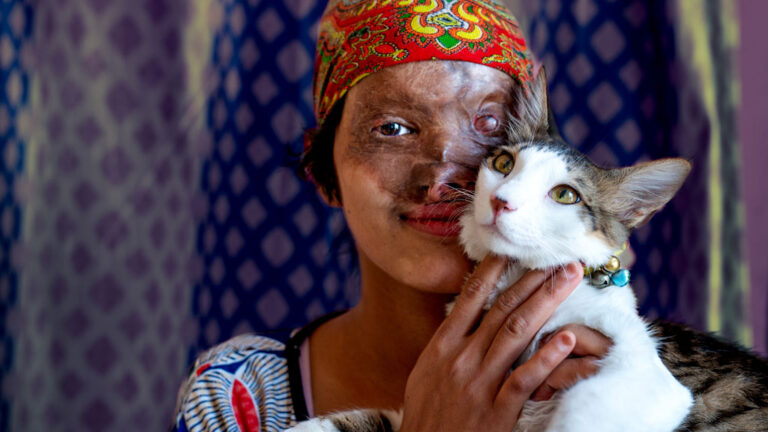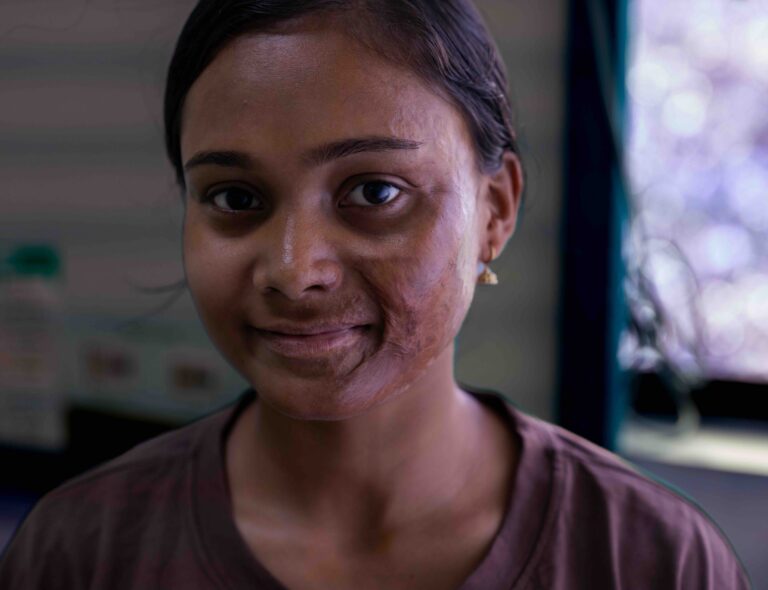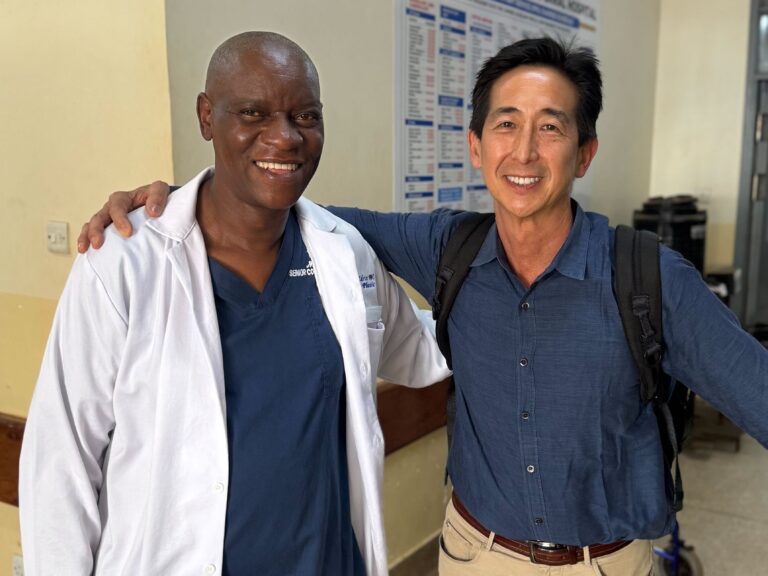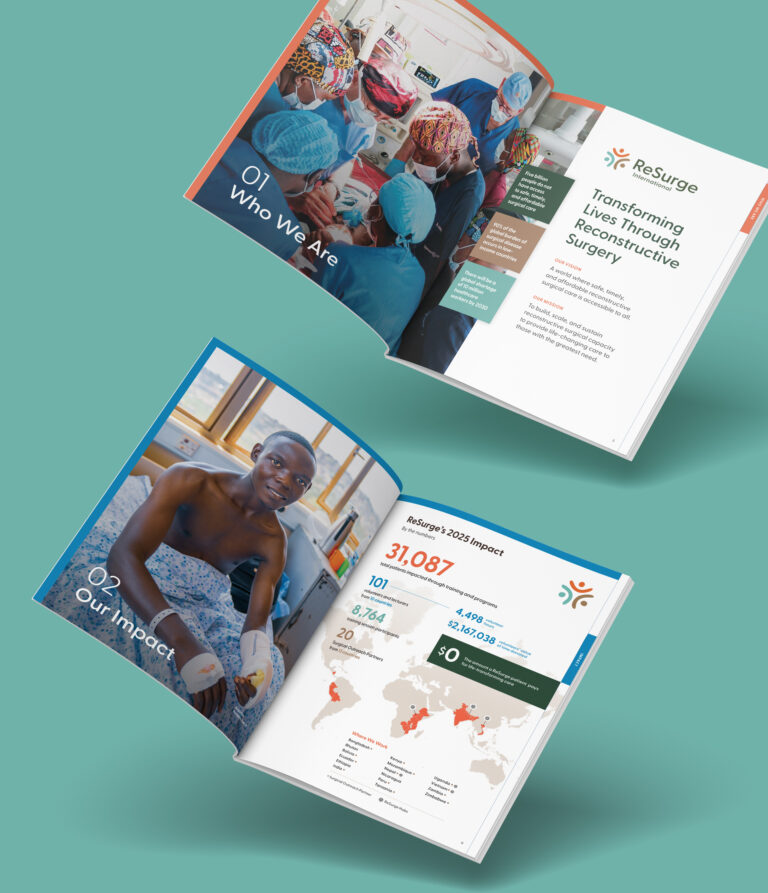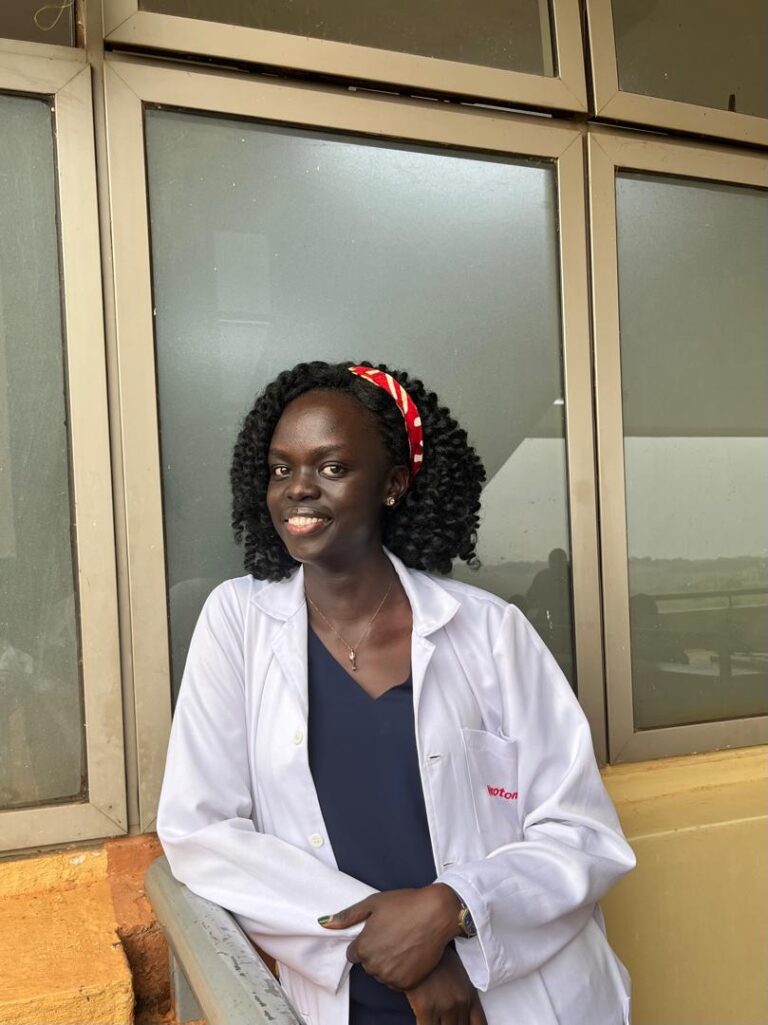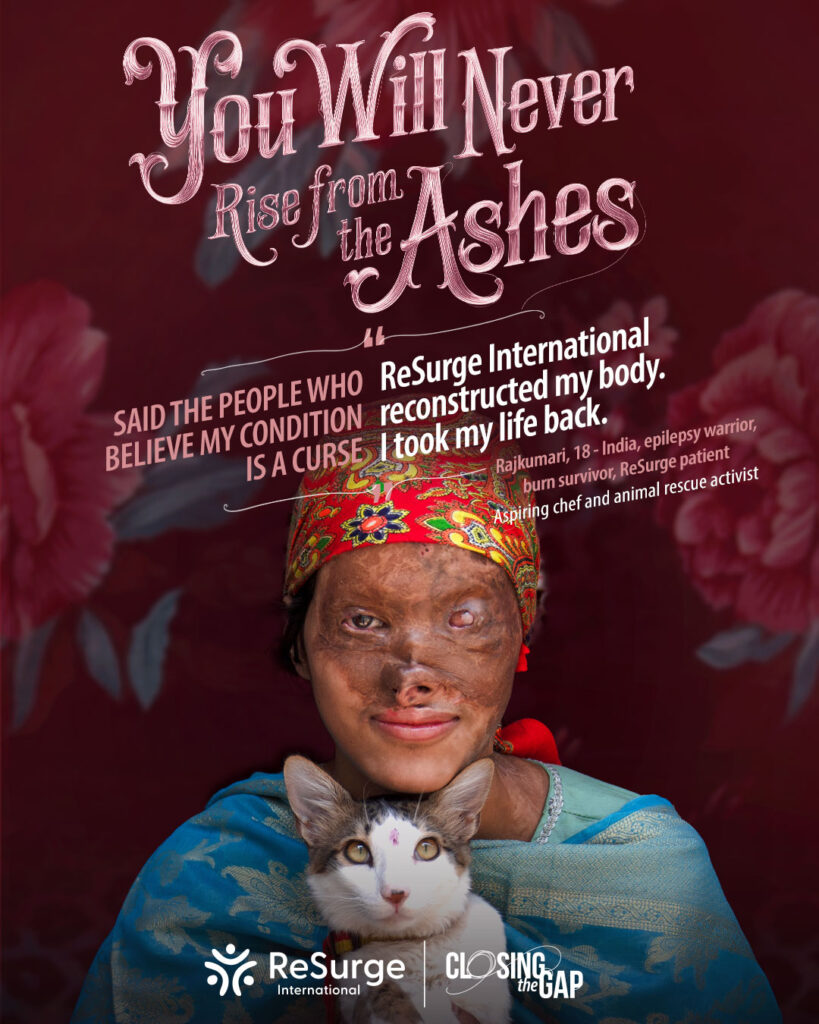
“They thought I was possessed, that spirits had taken hold of me,” said Rajkumari, a 17-year-old woman from Northern India whose name means “princess” in Hindi.
Rajkumari grew up believing she had inherited an evil spirit from her uncle. She was haunted by stories of how he suffered from from the same unexplained convulsions as she did. Treatment for these “episodes” consisted of calling a local traditional healer – medical care in her remote area was almost impossible to access, much less to afford. Rajkumari retreated into the home she shared with her mother, hiding her condition to lessen the weight of the stigma.
What Rajkumari knows now, is that she was actually suffering from epilepsy, a neurological condition that affects nearly 50 million people globally, with about 80% residing in low- and middle-income countries. What she didn’t know at the time was that her seizures would trigger something that would change her life forever–a near-death experience that would push her to go through something unimaginable to then rise from the ashes.
It is estimated that up to 70% of people living with epilepsy could live seizure-free if properly diagnosed and treated. Recurrent seizures can lead to various physical injuries and fire is a common trigger. In Rajkumari’s traditional stone home, there was no gas or electricity – wood and water had to be collected every day, and cooking was always over an open flame. For the 40 percent of the world’s population that still relies on open-cooking fires and fires as a heating source, women and children are at high risk for burn injuries and accidents. For a young woman with epilepsy, this would be a combination that would lead to a tragic incident in December 2022.
“I don’t remember anything from that day,” Rajkumari shared, recalling the incident nearly two years later. “I just remember waking up in a hospital bed.” A seizure had caused her to fall unconscious into a cooking fire, resulting in severe burns across her face, robbing her of sight in her right eye and leaving extensive skin damage. With no immediate medical facilities in her village, her survival depended on the swift actions of her uncle, who had moved from their small village to the city of Dehradun. He quickly arranged a six-hour journey to bring her to the city for urgent care. “I knew I had to act fast, so I arranged a cab to bring her to my home,” her uncle recalled. “We couldn’t even afford two meals a day at the time, but I borrowed money because I knew we had to get her to a hospital. We weren’t sure if she would survive, but we had to try, no matter the outcome.”

Rajkumari was admitted to Helping Hands, a charitable hospital run by Dr. Kush Aeron, a ReSurge International surgeon specializing in burn treatment. Dr. Aeron arranged for her to stay at the hospital for five months to receive comprehensive care. “Burns are a disease of poverty. Many surgeons shy away from treating burn victims because they often come from disadvantaged backgrounds,” Dr. Aeron explained. “I have dedicated my life to this work with the support of ReSurge International. Someone needs to help, and it’s my life’s calling.”
At the hospital, under Dr. Aeron’s skilled care and with the loving support of her sister Diksha—who had been living with their uncle since she was a baby—Rajkumari began her journey of healing. The hospital became a sanctuary where she lived for nearly five months, gradually healing both physically and emotionally. Diksha was by her side every day, offering comfort during those painful early days when Rajkumari could barely speak. Noticing Diksha’s dedication, Dr. Aeron offered her a position assisting with hospital bookkeeping. This allowed her to earn a salary while caring for her sister and other patients, ensuring she could support them during this critical period.
As Rajkumari underwent multiple surgeries, from skin grafts to tissue expansion procedures, she began to rediscover herself beyond her scars. Eventually, she moved to her new home with her uncle, aunt, cousins, and sister. There, she found joy in caring for her beloved kitten, Whisky, a gift from her uncle to aid in her healing. She also rekindled her passion for cooking, mastering dishes like dal, chapatis, and rice without fear of open flames.
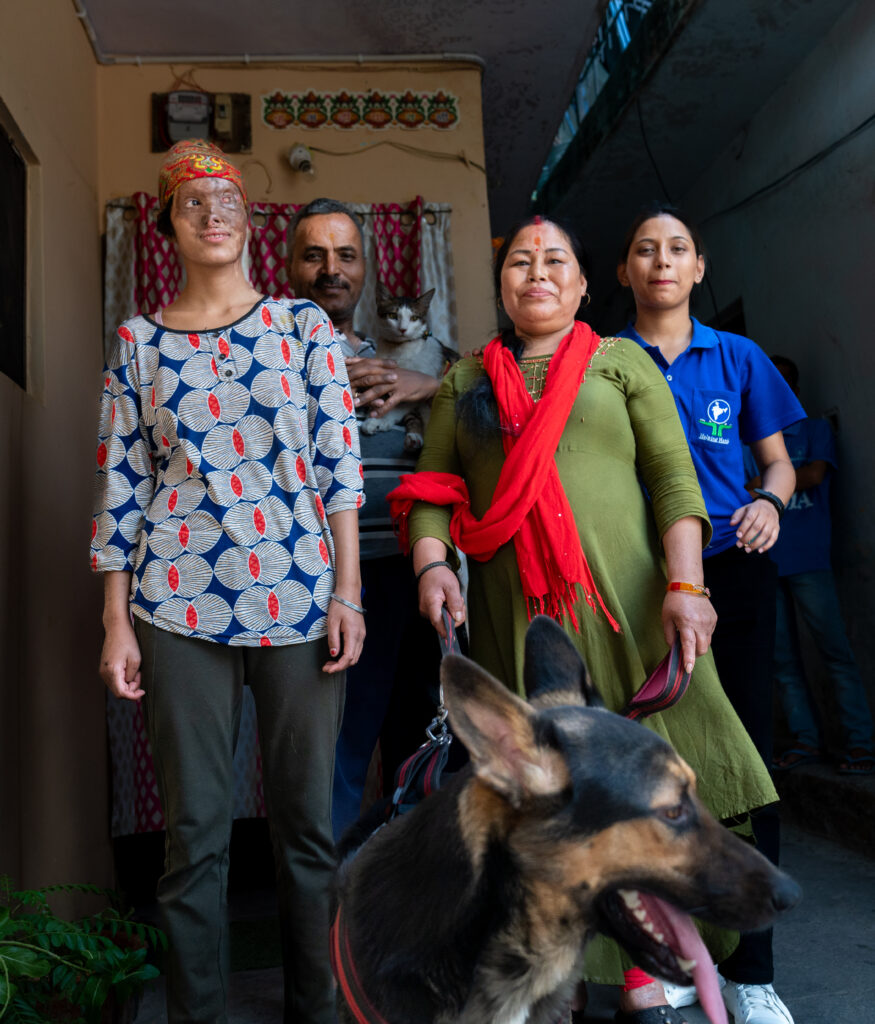
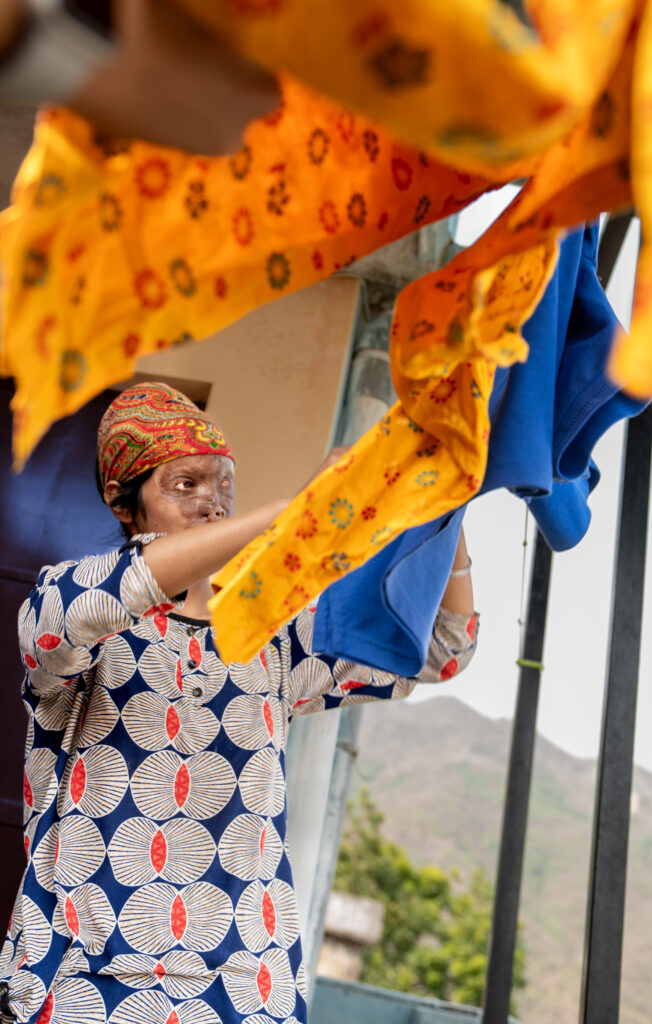
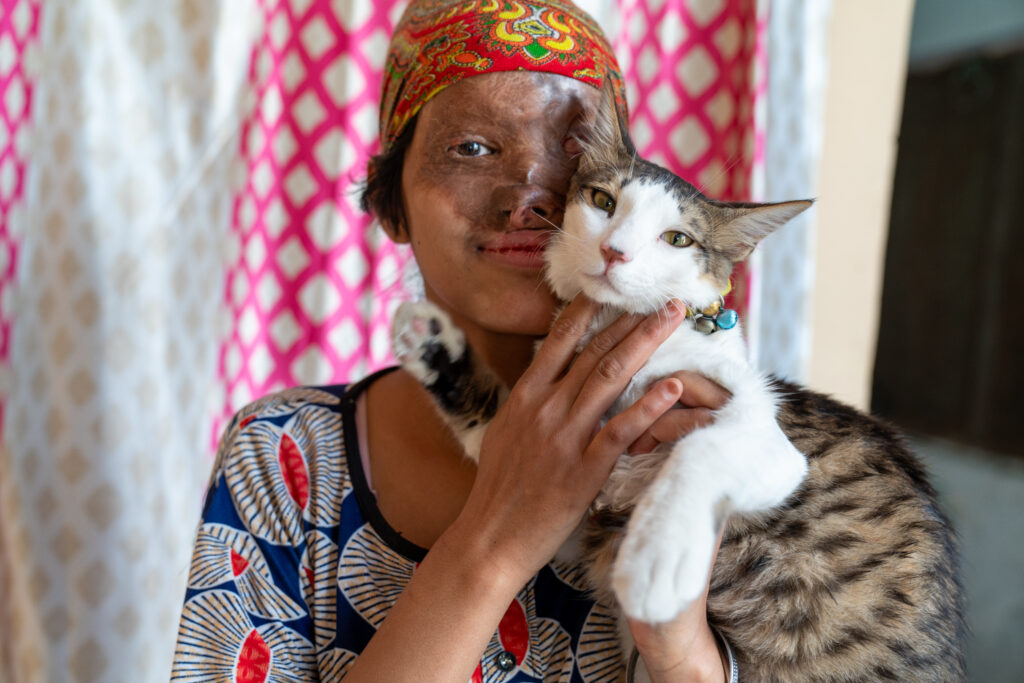
“She makes very nice dal, chapatis, and rice,” her aunt noted, proud of Rajukumari’s determination to return to the routines that brought her joy before the accident.
Rajkumari’s progress has been remarkable. Just a year ago, she struggled to speak or make eye contact, the physical and emotional pain of losing much of her face overwhelming her. Now, she is thriving. “I am so happy to be here with my new family—my uncle, aunt, and sister who I didn’t know growing up. I don’t want to go back,” Rajkumari says matter-of-factly. “I know now that my seizures were not caused by spirits, and I have support.”
Rajkumari has undergone five surgeries so far, but she will need at least five more. According to Dr. Aeron, she still requires reconstruction of her nose, a corneal transplant, and surgery on her eyelids. While Rajkumari’s story has a hopeful trajectory, far too many women like her do not get the same opportunity. ReSurge International works to provide free reconstructive surgical care to patients like Rajkumari, supporting and training doctors like Dr. Aeron who are dedicated to treating burn survivors. Our goal is to continue expanding access to life-changing reconstructive care for those who need it most.
They thought the flames had taken everything from her. Yet, in their fierce heat, a queen was forged—a young woman who now fully embraces her name, Rajkumari, meaning “princess” in Hindi. Her realm extends beyond the hospital walls. She has gained a new life, a new perspective, a sister, and a community of support.
Rajkumari’s story is not just about survival; it is a tale of triumph. Her journey continues to inspire, proving that from the ashes of devastation, a queen can indeed rise—graced with dignity and crowned with courage.
Rajkumari in the media: Read the article published in Think Global Health about the connection between epilepsy, gender, and burns.
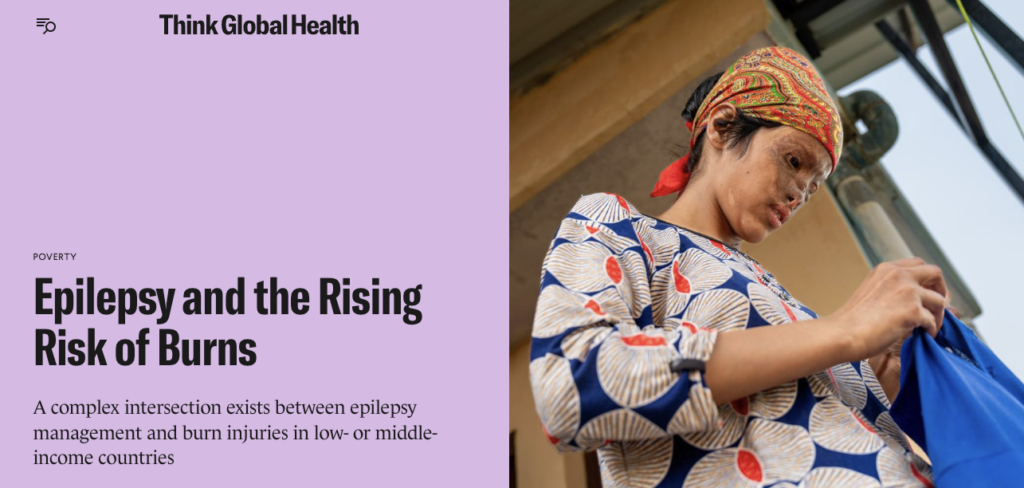
ReSurge reconstructed Rajkumari’s scars – Rajkumari rose from the ashes – and your donations make it possible.
Help ReSurge train more surgeons to help patients like Rajkumari and close the gap to reconstructive surgery once and for all.

